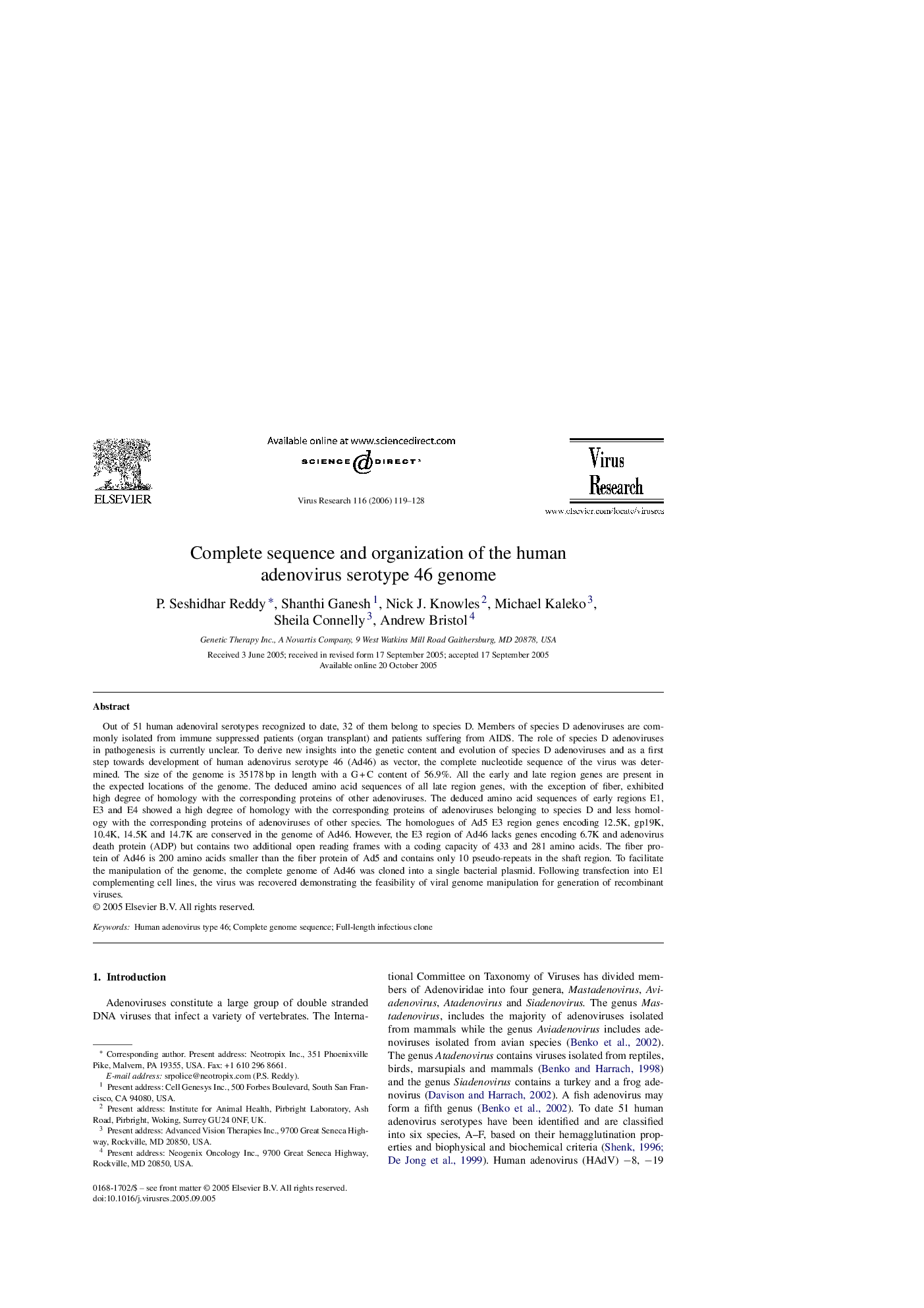| Article ID | Journal | Published Year | Pages | File Type |
|---|---|---|---|---|
| 3431453 | Virus Research | 2006 | 10 Pages |
Out of 51 human adenoviral serotypes recognized to date, 32 of them belong to species D. Members of species D adenoviruses are commonly isolated from immune suppressed patients (organ transplant) and patients suffering from AIDS. The role of species D adenoviruses in pathogenesis is currently unclear. To derive new insights into the genetic content and evolution of species D adenoviruses and as a first step towards development of human adenovirus serotype 46 (Ad46) as vector, the complete nucleotide sequence of the virus was determined. The size of the genome is 35178 bp in length with a G + C content of 56.9%. All the early and late region genes are present in the expected locations of the genome. The deduced amino acid sequences of all late region genes, with the exception of fiber, exhibited high degree of homology with the corresponding proteins of other adenoviruses. The deduced amino acid sequences of early regions E1, E3 and E4 showed a high degree of homology with the corresponding proteins of adenoviruses belonging to species D and less homology with the corresponding proteins of adenoviruses of other species. The homologues of Ad5 E3 region genes encoding 12.5K, gp19K, 10.4K, 14.5K and 14.7K are conserved in the genome of Ad46. However, the E3 region of Ad46 lacks genes encoding 6.7K and adenovirus death protein (ADP) but contains two additional open reading frames with a coding capacity of 433 and 281 amino acids. The fiber protein of Ad46 is 200 amino acids smaller than the fiber protein of Ad5 and contains only 10 pseudo-repeats in the shaft region. To facilitate the manipulation of the genome, the complete genome of Ad46 was cloned into a single bacterial plasmid. Following transfection into E1 complementing cell lines, the virus was recovered demonstrating the feasibility of viral genome manipulation for generation of recombinant viruses.
